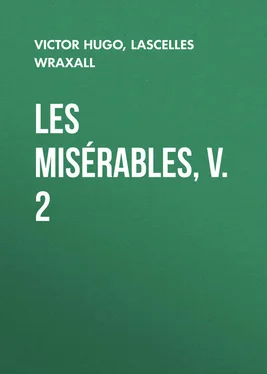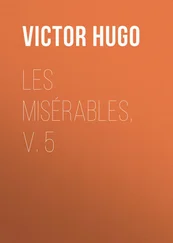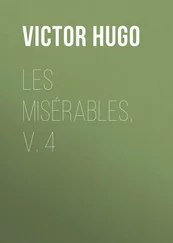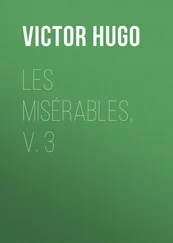Lascelles Wraxall - Les Misérables, v. 2
Здесь есть возможность читать онлайн «Lascelles Wraxall - Les Misérables, v. 2» — ознакомительный отрывок электронной книги совершенно бесплатно, а после прочтения отрывка купить полную версию. В некоторых случаях можно слушать аудио, скачать через торрент в формате fb2 и присутствует краткое содержание. Жанр: literature_19, foreign_antique, foreign_prose, на английском языке. Описание произведения, (предисловие) а так же отзывы посетителей доступны на портале библиотеки ЛибКат.
- Название:Les Misérables, v. 2
- Автор:
- Жанр:
- Год:неизвестен
- ISBN:нет данных
- Рейтинг книги:5 / 5. Голосов: 1
-
Избранное:Добавить в избранное
- Отзывы:
-
Ваша оценка:
- 100
- 1
- 2
- 3
- 4
- 5
Les Misérables, v. 2: краткое содержание, описание и аннотация
Предлагаем к чтению аннотацию, описание, краткое содержание или предисловие (зависит от того, что написал сам автор книги «Les Misérables, v. 2»). Если вы не нашли необходимую информацию о книге — напишите в комментариях, мы постараемся отыскать её.
Les Misérables, v. 2 — читать онлайн ознакомительный отрывок
Ниже представлен текст книги, разбитый по страницам. Система сохранения места последней прочитанной страницы, позволяет с удобством читать онлайн бесплатно книгу «Les Misérables, v. 2», без необходимости каждый раз заново искать на чём Вы остановились. Поставьте закладку, и сможете в любой момент перейти на страницу, на которой закончили чтение.
Интервал:
Закладка:
Ney, wild, and grand in the consciousness of accepted death, offered himself to every blow in this combat. He had his fifth horse killed under him here. Bathed in perspiration, with a flame in his eye and foam on his lips, his uniform unbuttoned, one of his epaulettes half-cut through by the sabre-cut of a horse-guard, and his decoration of the great Eagle dinted by a bullet, – bleeding, muddy, magnificent, and holding a broken sword in his hand, he shouted, "Come and see how a marshal of France dies on the battle-field!" But it was in vain; he did not die. He was haggard and indignant, and hurled at Drouet d'Erlon the question, "Are you not going to get yourself killed?" He yelled amid the roar of all this artillery, crushing a handful of men, "Oh, there is nothing for me! I should like all these English cannon-balls to enter my chest!" You were reserved for French bullets, unfortunate man.
CHAPTER XIII
THE CATASTROPHE
The rout in the rear of the guard was mournful; the army suddenly gave way on all sides simultaneously, – at Hougomont, La Haye Sainte, Papelotte, and Plancenoit. The cry of "Treachery!" was followed by that of "Sauve qui peut!" An army which disbands is like a thaw, – all gives way, cracks, floats, rolls, falls, comes into collision, and dashes forward. Ney borrows a horse, leaps on it, and without hat, stock, or sword, dashes across the Brussels road, stopping at once English and French. He tries to hold back the army, he recalls it, he insults it, he clings wildly to the rout to hold it back. The soldiers fly from him, shouting, "Long live Marshal Ney!" Two regiments of Durutte's move backward and forward in terror, and as it were tossed between the sabres of the Hussars and the musketry fire of Kempt's, Best's, and Pack's brigades. A rout is the highest of all confusions, for friends kill one another in order to escape, and squadrons and battalions dash against and destroy one another. Lobau at one extremity and Reille at the other are carried away by the torrent. In vain does Napoleon build a wall of what is left of the Guard; in vain does he expend his own special squadrons in a final effort. Quiot retires before Vivian, Kellermann before Vandeleur, Lobau before Bülow, Moraud before Pirch, and Domor and Subervie before Prince William of Prussia. Guyot, who led the Emperor's squadrons to the charge, falls beneath the horses of English Dragoons. Napoleon gallops along the line of fugitives, harangues, urges, threatens, and implores them; all the mouths that shouted "Long live the Emperor!" in the morning, remained wide open; they hardly knew him. The Prussian cavalry, who had come up fresh, dash forward, cut down, kill, and exterminate. The artillery horses dash forward with the guns; the train soldiers unharness the horses from the caissons and escape on them; wagons overthrown, and with their four wheels in the air, block up the road and supply opportunities for massacre. Men crush one another and trample over the dead and over the living. A multitude wild with terror fill the roads, the paths, the bridges, the plains, the hills, the valleys, and the woods, which are thronged by this flight of forty thousand men. Cries, desperation; knapsacks and muskets cast into the wheat; passages cut with the edge of the sabres; no comrades, no officers, no generals recognized, – an indescribable terror. Ziethen sabring France at his ease. The lions become kids. Such was this fight.
At Genappe an effort was made to turn and rally; Lobau collected three hundred men; the entrance of the village was barricaded, but at the first round of Prussian canister all began flying again, and Lobau was made prisoner. This volley of shot may still be seen, buried in the gable of an old brick house on the right of the road, just before you reach Genappe. The Prussians dashed into Genappe, doubtless furious at being such small victors, and the pursuit was monstrous, for Blücher commanded extermination. Roguet had given the mournful example of threatening with death any French Grenadier who brought in a Prussian prisoner, and Blücher surpassed Roguet Duchesme, general of the young guard, who was pursued into the doorway of an inn in Genappe, surrendered his sword to an Hussar of death, who took the sword and killed the prisoner. The victory was completed by the assassination of the vanquished. Let us punish, as we are writing history, – old Blücher dishonored himself. This ferocity set the seal on the disaster; the desperate rout passed through Genappe, passed through Quatre Bras, passed through Sombreffe, passed through Frasnes, passed through Thuin, passed through Charleroi, and only stopped at the frontier. Alas! and who was it flying in this way? The grand army.
Did this vertigo, this terror, this overthrow of the greatest bravery that ever astonished history, take place without a cause? No. The shadow of a mighty right hand is cast over Waterloo; it is the day of destiny, and the force which is above man produced that day. Hence the terror, hence all those great souls laying down their swords. Those who had conquered Europe, fell crushed, having nothing more to say or do, and feeling a terrible presence in the shadow. Hoc erat in fatis. On that day the perspective of the human race was changed, and Waterloo is the hinge of the 19th century. The disappearance of the great man was necessary for the advent of the great age, and He who cannot be answered undertook the task. The panic of the heroes admits of explanation: in the battle of Waterloo there is more than a storm, – there is a meteor.
At nightfall, Bernard and Bertrand seized by the skirt of his coat, in a field near Genappe, a haggard, thoughtful, gloomy man, who, carried so far by the current of the rout, had just dismounted, passed the bridle over his arm, and was now, with wandering eye, returning alone to Waterloo. It was Napoleon, the immense somnambulist of the shattered dream, still striving to advance.
CHAPTER XIV
THE LAST SQUARE
A few squares of the Guard, standing motionless in the swash of the rout, like rocks in running water, held out till night. They awaited the double shadow of night and death, and let them surround them. Each regiment, isolated from the others, and no longer connected with the army which was broken on all sides, died where it stood. In order to perform this last exploit, they had taken up a position, some on the heights of Rossomme, others on the plain of Mont St. Jean. The gloomy squares, deserted, conquered, and terrible, struggled formidably with death, for Ulm, Wagram, Jena, and Friedland were dying in it. When twilight set in at nine in the evening, one square still remained at the foot of the plateau of Mont St. Jean. In this mournful valley, at the foot of the slope scaled by the cuirassiers, now inundated by the English masses, beneath the converging fire of the hostile and victorious artillery, under a fearful hailstorm of projectiles, this square still resisted. It was commanded by an obscure officer of the name of Cambronne. At each volley the square diminished, but continued to reply to the canister with musketry fire, and each moment contracted its four walls. Fugitives in the distance, stopping at moments to draw breath, listened in the darkness to this gloomy diminishing thunder.
When this legion had become only a handful, when their colors were but a rag, when their ammunition was exhausted, and muskets were clubbed, and when the pile of corpses was greater than the living group, the victors felt a species of sacred awe, and the English artillery ceased firing. It was a sort of respite; these combatants had around them an army of spectres, outlines of mounted men, the black profile of guns, and the white sky visible through the wheels; the colossal death's-head which heroes ever glimpse in the smoke of a battle, advanced and looked at them. They could hear in the twilight gloom that the guns were being loaded; the lighted matches, resembling the eyes of a tiger in the night, formed a circle round their heads. The linstocks of the English batteries approached the guns, and at this moment an English general, – Colville according to some, Maitland according to others, – holding the supreme moment suspended over the heads of these men, shouted to them, "Brave Frenchmen, surrender!"
Читать дальшеИнтервал:
Закладка:
Похожие книги на «Les Misérables, v. 2»
Представляем Вашему вниманию похожие книги на «Les Misérables, v. 2» списком для выбора. Мы отобрали схожую по названию и смыслу литературу в надежде предоставить читателям больше вариантов отыскать новые, интересные, ещё непрочитанные произведения.
Обсуждение, отзывы о книге «Les Misérables, v. 2» и просто собственные мнения читателей. Оставьте ваши комментарии, напишите, что Вы думаете о произведении, его смысле или главных героях. Укажите что конкретно понравилось, а что нет, и почему Вы так считаете.












